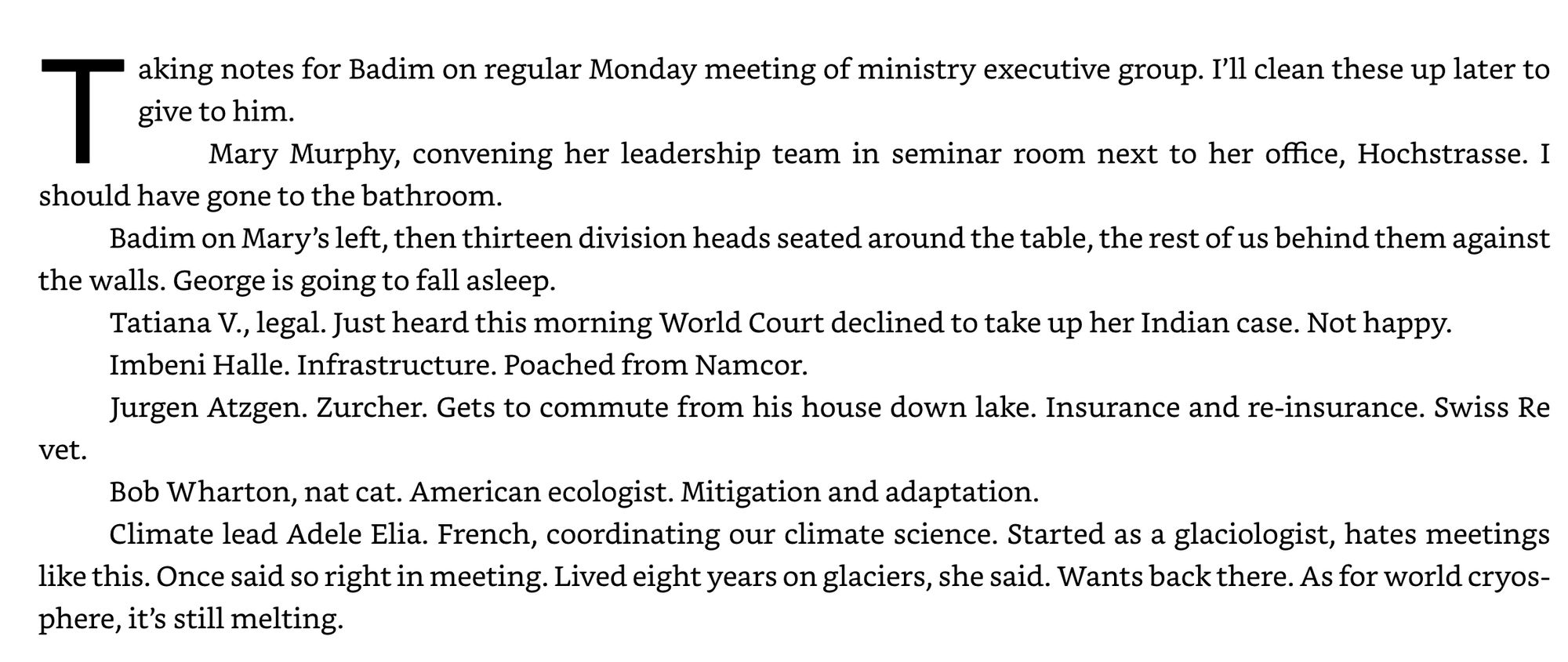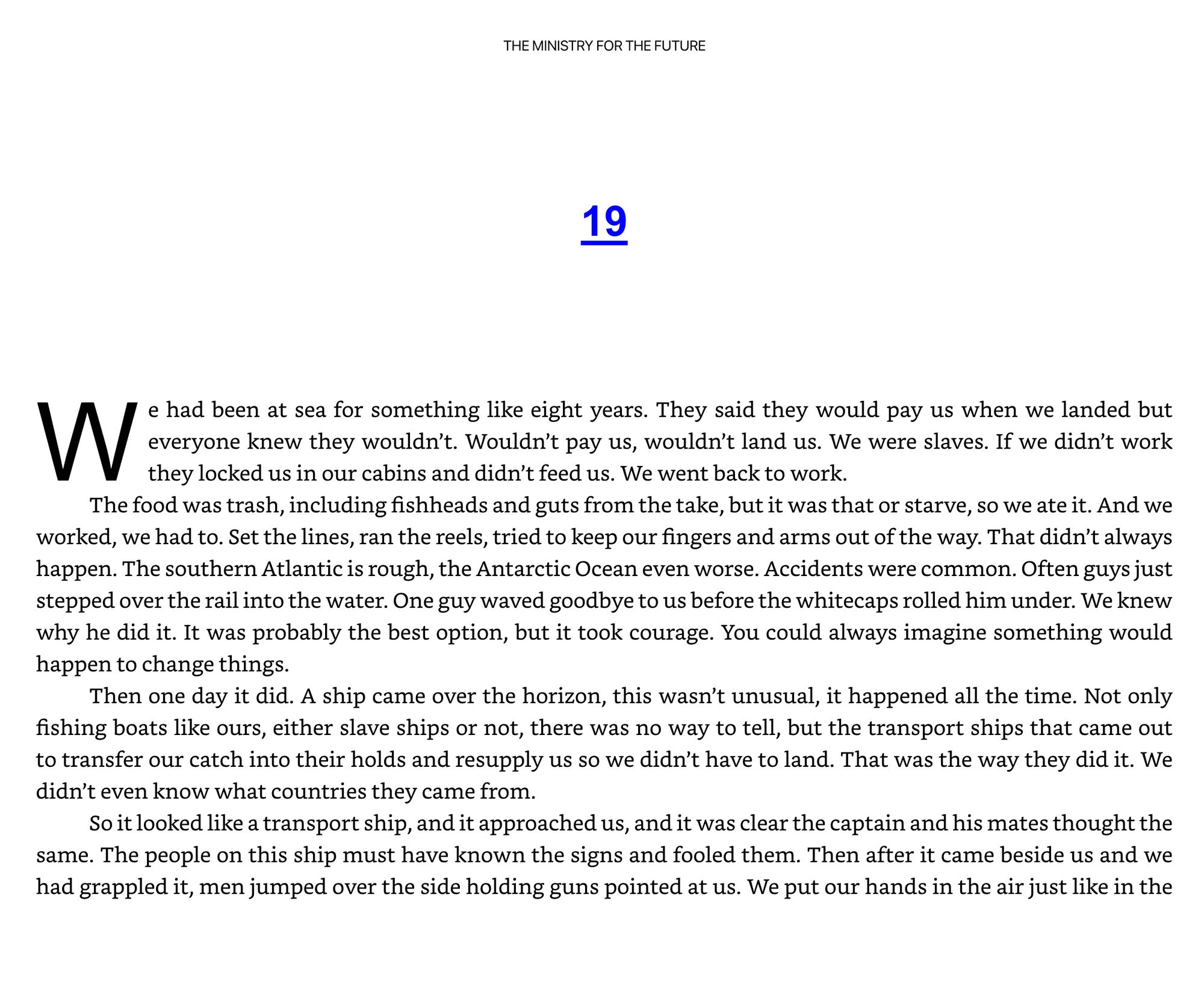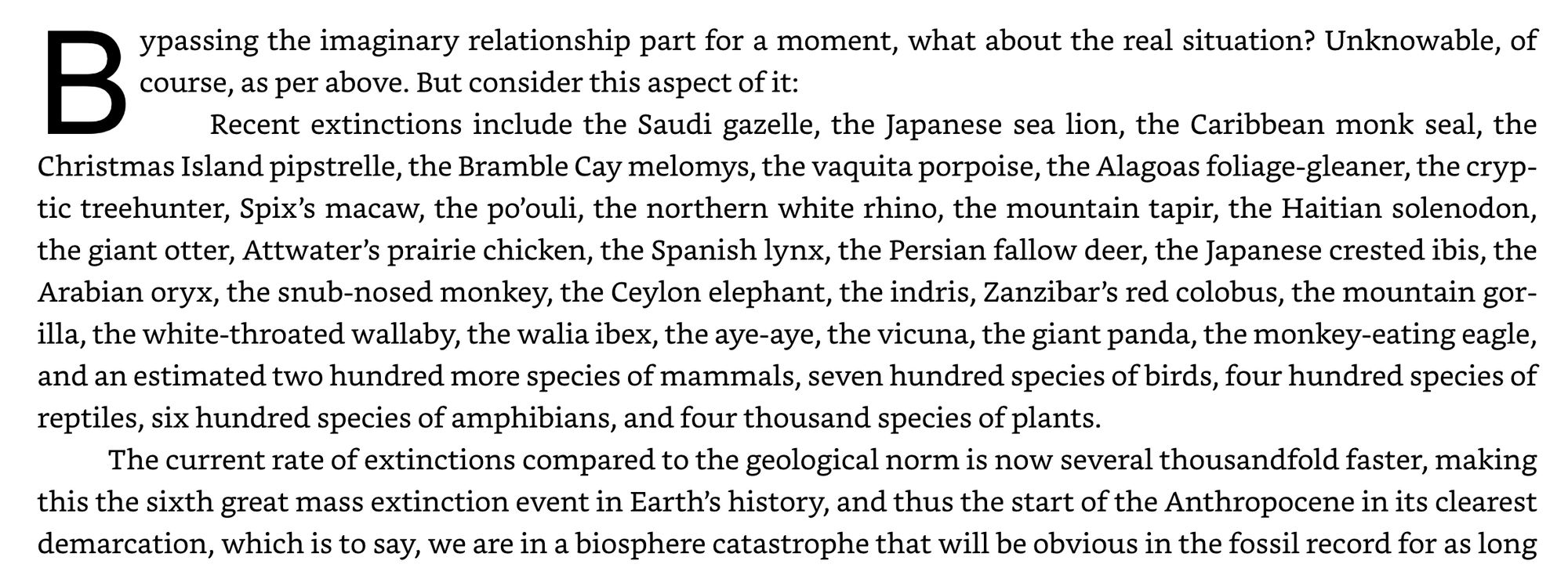Review: Does traditional publishing want to watch the world burn?

You're about to read possibly the most negative review of a traditionally-published book in history (well, maybe not).
When I started penning this explosively nasty review, I wondered why I was so angry, but realised quickly. It's just unfair. The trad-published book I'm about to review is almost UNREADABLE. Literally, unreadable at a technical writing level. Yet, it's got a traditional publishing contract, and has attracted positive reviews and accolades from the highest levels of government.
But, at the same time, there are books and stories on Amazon, also on the topic of climate change, some written by authors from the Global South, which don't get visibility. And there are literally hundreds of other well-written enjoyable books that never attract conventional publishing contracts either.
What gives? It's desperately unfair.
Ministry for the Future

You're now going to wonder - which is the s**t novel I'm about to savage?
And it's Ministry from the Future by acclaimed science fiction author Kim Stanley Robinson, which I've had on my Kindle for several years. Described as a near-future vision of how we might solve climate change, Ministry for the Future had a HUGE amount of hype in 2020, including being listed among former US president Barack Obama's favourite reads.
I'm going to provide some useful background here. I'm a former climate scientist. I also have an MFA in Creative Writing, so I'm used to people experimenting with literary language and the form of the novel. When done well, it can be compelling and a pleasure to read.
A Travesty of Unreadable Wank
Unfortunately, I am here to tell you that... erm, Ministry for the Future is neither compelling NOR a pleasure to read. It is a f****g mess.
For me, it was a 10% DNF (Did Not Finish). I'm not pulling my punches here. I have no idea what this Guardian newspaper reviewer read because it was NOT the same book I attempted. And, dearest reader, I did attempt to read this book. The problem is that it's an 'important' book and - as we all know - no one actually reads important books, they just try to sound intelligent by talking about them.
Putting that aside, Ministry for the Future fails because it tries to be two things simultaneously: a speculative technical discussion on how to solve climate change AND a sci-fi novel. It fails at both. As a technical report, it's full of ineptly-executed literary wibble. As a novel, it skips...well, the absolute basics. Plot, character, dialogue - you name it, it doesn't do it.

Apparently, this is intentional. According to Wikipedia, his editor at Orbit Books, Tim Holman, encouraged him to embark on this travesty of unreadable wank. And, having seen the mess that resulted, he published it anyway. Tim needs to be dropped (gently) into a (metaphorical) lake during a near-future heatwave in Uttar Pradesh (and rescued afterwards, I'm not a monster) - because, literally, the opening was the only decent f****g chapter of the book.

I loved the Red Mars trilogy by the same author (and would recommend it). And, as a result, was shocked by how much I disliked Ministry for the Future. I was so amazed, in fact, this pile of dross was published (and attracted fawning commentary) that I screen-shotted sections as I was reading. Below are some egregious examples, although - to be honest - most of the 10% plus I read was like this.
Why Ministry for the Future sucks like a hydrogen-powered Dyson
EXHIBIT A

Okay. Like many authors, I write notes for my scenes (and chapters).
Fred sees the cheese factory, and is upset. Fred nukes Paris... etc. etc.
I usually... in fact, I always expand these notes into an actual chapter. With characters, setting and dialogue, e.g. the heap of greasy camembert was shaking. Fred hit it with a spade. Once... twice... I shouldn't need to explain why actually writing scenes in novels is a thing.
But, apparently, I do because Kim Stanley Robinson decided to not write the scene and instead stick notes like 'Tatiana. V., legal. Not happy' in a published fictional work (and I realise these are supposed to be notes, but - seriously - does this literary device advance the plot, or make me care about the characters? Do any of these characters even appear again in this book? Not that I noticed. But, heck, there were loads of them, they had zero characterisation and they all talked like a technical lecture, so HOW WOULD I EVEN KNOW?)
EXHIBIT B

And then we get this piece of utter dreck... I mean, genuinely, go to any creative writing group, course, etc. and you're told to tell the reader whose f***g point of view you're in. I mean, literally. Who is the person we are reading about here?
Do we find out? Nope. Do we care about this person? Nope. Was I confused? Yep.
If this chapter was written by a literary author, who was experimentally NOT identifying their point-of-view character, they would write a VOICE (you know, a deliberate difference in writing style that distinguishes one character from another). And that voice would make you CARE about this character, even if they remained unnamed and only appeared in one paragraph.
Because that's what GOOD authors of experimental fiction, or even COMPETENT ones, do to make their work interesting and readable.
Again, I shouldn't need to explain why fiction contains characters who have opinions and voices. And why a UK Department of Health report on personalised care, for example, does NOT contain characters with opinions or voices. But, apparently, I have to do so, for this book...
EXHIBIT C

And, then, slotted between the notes for scenes not written, and the vague literary ramblings about unidentifiable characters, we get this... YES, you've guessed it. The author read a thing. By an actual expert. And he was so excited, he decided to regurgitate the entire lecture - but in a fiction book, and no longer written by the expert.

I don't want to feel this angry. But, I guess I'm cross that KSR tried experimental literary writing that he was NOT CAPABLE of pulling off. And, even after he'd submitted this dross, no one at Orbit said, "sorry, maybe go back and rewrite it in a more conventional style because you are not Martin Amis". Instead, it seems they decided that, because it was about climate change and by the author of the Red Mars trilogy, it would sell like hot cakes, even if no one actually finished it.
And that's as cynical as all f**k. Even more cynical than the dude who wants AI to read slush piles because writing only needs to be 'good enough'. And I do wonder how well Ministry for the Future would have done on Kindle Unlimited, where authors are paid by how many pages actually get read.
Why I'm as angry as unprecedented Canadian wildfires
The true travesty here, however, is that Ministry for the Future was an opportunity to present an optimistic vision of the future, and lay out a roadmap for solving climate change. This could have been done with narrative non-fiction by an acclaimed science writer. Or by signal boosting the excellent work already being done within the solarpunk and hopepunk communities.

But, by publishing this book, which will only be finished by people who think it's improving, this opportunity is lost completely. What a terrible, terrible, TERRIBLE waste.
Anyway, if you want to read some amazing non-fiction science writing on climate change (or just animals), I'd recommend starting with Ed Yong in the Atlantic. On the other hand, if you want to read some cli-fi, there's great solarpunk out there, some by writers from the Global South, all of which needs your support and more visibility.
